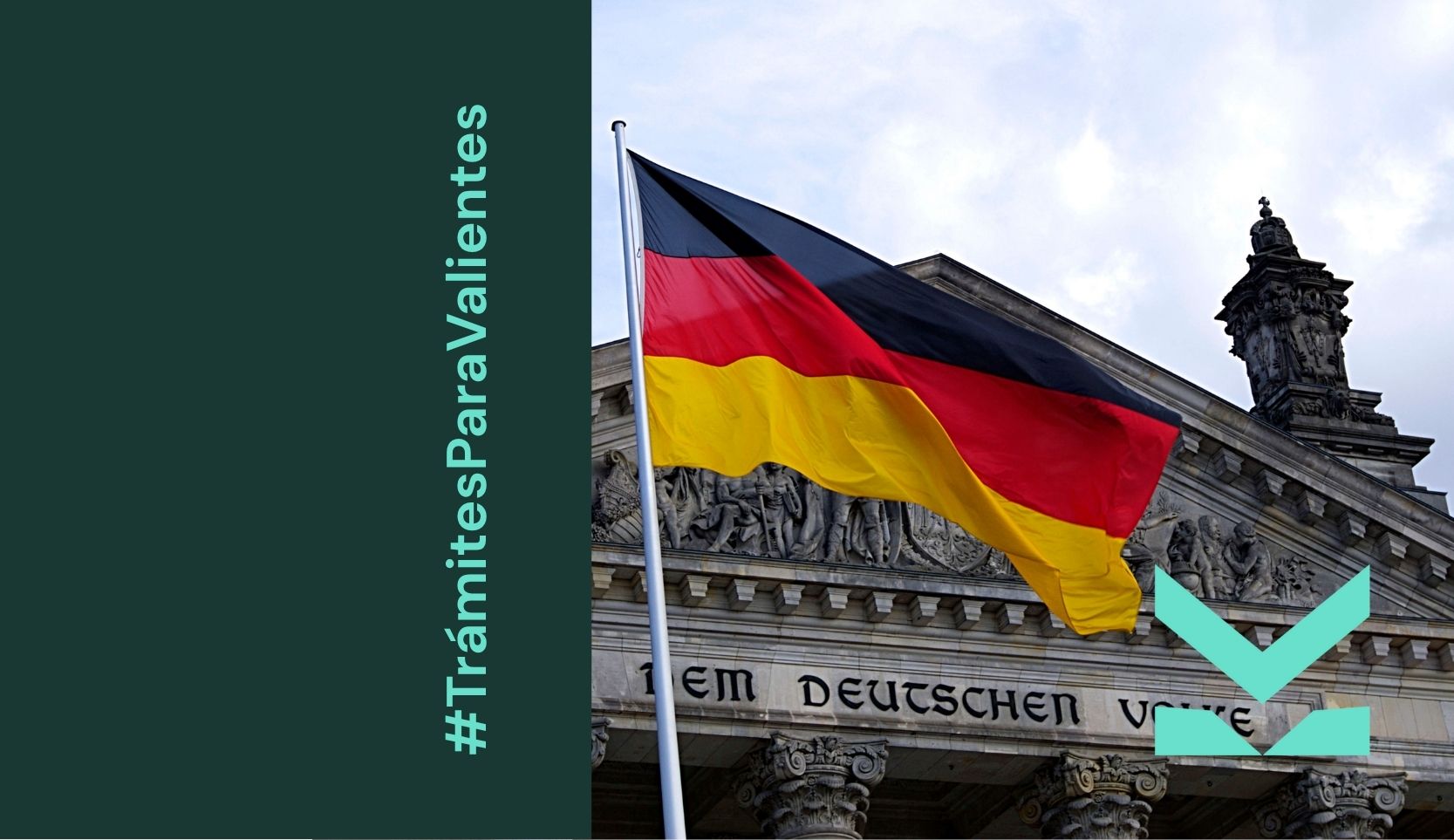When we thought of moving to this European country So organised, one of the first questions we ask ourselves is: What is the minimum wage in Germany? Knowing this figure is key to planning well for our lives as migrants, especially for those of us who come from Venezuela seeking a more stable future.
Many of us have been forced to seek new horizons in the hope of a more secure life with better opportunities.
In order to make informed decisions we need to have a good understanding of the minimum wage in Germanyhow it is calculated, how much it will amount to in 2025, how it has evolved, which sectors have special minimums and whether it is really viable to live on that income in cities such as Berlin, Munich or Hamburg.
Today we want to share with you a very complete and up-to-date analysis of the issue, based on official figures and our experience living here, so that you know what to look out for before making the leap or planning a future in this country.
What is the minimum wage in Germany in 2025?

Let's start with the essential fact, by 2025 the minimum wage in Germany is 13.50 euros gross per hour.
This figure represents the latest adjustment approved by the minimum wage commission. (Mindestlohnkommission) and the federal government in 2024, which determined a progressive increase to 13.50 euros on 1 January 2025.
To give us a clearer picture, Germany introduced the statutory minimum wage for the first time in 2015 at a rate of €8.50/hour.
Since then, it has had gradual increases to protect workers' purchasing power, especially in the midst of recent inflation.
The minimum wage in Germany is not just a cold number, for many migrants, including those who have been Venezuelans that we came here looking for stability, is the first benchmark of how feasible it is to stay here without too much hardship.
How much does it represent per month for a full day?
In Germany, the standard full-time working time is usually 40 hours per week (some companies work 37.5 or 39). If we use 40 hours a week as a reference:
- 13.50 euros/hour x 40 hours = 540 euros/week
- Per month (4.33 weeks on average): 540 x 4.33 ≈ 2338 euros gross per month.
It is important to remember that in Germany we almost always talk about wages grossi.e, before deductions.
Depending on the tax class (Steuerklasse), social security, pension and compulsory health insurance, the net amount is usually between 60% and 70% of the gross amount, to make this calculation easier for you, we leave you with this calculator.
Thus, the net minimum wage in 2025 is estimated at approximately 1400 to 1600 euros per monthThe amount of the tax, although it may vary slightly depending on the family situation and the federal state.
Wage developments in Germany

To better understand the context, let us look at its evolution in recent years, which has been positive:
- 2015: €8.50/hour (introduction of the statutory minimum wage)
- 2017: 8.84 €/hour
- 2019: 9,19 €/hour
- 2020: 9.35 €/hour
- 2021: 9.60 €/hour (July: 9.60)
- 2022: 9.82 €/hour (January), 10.45 €/hour (July)
- October 2022: Political leap to 12 €/hour
- 2024: 12,41 €/hour (January), 12,82 €/hour (July)
- 2025: 13,50 €/hour (January)
As we can see, the minimum wage in Germany has increased markedly over the last decade.
The decision to raise it from 12 to over 13 euros in two years was in part a response to the inflation derived from the energy crisis and the war in Ukraineas well as a election promise of the current government.
We, as migrantsWe are grateful that this review mechanism exists, because it means some predictability, even if it is not always enough to cover everything comfortably.
Sectors with special wages

It is important to clarify that not everyone earns exactly the same amount of money as the minimum wage in Germany general. There are sectors with collective agreements that set higher minimums. For example:
- Construction: around 16-18 €/hour, depending on the region.
- Care for the elderly: from 15 €/hour for qualified personnel.
- Electricians or industrial technicians: often more than 17 €/hour.
- Cleaning of buildingsThe minimum hourly rate is usually a sectoral minimum, in 2025 it is estimated to be around 13.50-14 €/hour for simple cleaning, and more for specialised cleaning.
There are also legal exceptions:
- Children under 18 years of age without completed training: they are not covered by the minimum wage.
- Compulsory internships during studies: may not receive the minimum.
- Voluntary traineeships of less than 3 months: also exempt.
It is therefore advisable to be very well informed before signing a contract. contract. To many migrants newcomers offer us jobs with lower salariestelling us that "the minimum does not apply". In some cases this is true, but in many cases it is an abuse that we must denounce.
The cost of living in Germany in 2025

Now comes the big question: can we make a good living with the minimum wage in Germany? Here we enter subjective territory, but let's try to be clear and based on current data.
In 2025, Germany remains one of the most expensive countries in the world. Europe westernand there are many factors to be taken into account types of expenses we may have in this country. The basic monthly cost of living for a single person varies widely from city to city.
Berlin
Berlin remains relatively more accessible than Munichbut it has become very expensive:
- Room in a shared flat: 500-700 €/month
- Small studio: €800-1200/month
- Monthly transport: 49-60 €.
- Food (basic supermarket): 250-350 €.
- Miscellaneous: 100-200 €.
Estimated minimum total: 900-1500 euros per month for a simple but dignified life.
With a net minimum wage of ~1500 eurosyou can live in Berlinbut without many luxuries. Many of us share a flat or cut down on expenses to save some or all of our money. sending remittances.
Munich
Munich is undoubtedly the most expensive city in Germany:
- Room in shared flat: 700-900 €.
- Study: 1200-1700 €.
- Transport: €60-80
- Meals: 300-400 €.
Here with the minimum wage life is lived very fairly. Many migrants need two jobs or a partner with extra income to cover everything more comfortably and without disrupting our lives too much.
Hamburg
Hamburg is at a level upper-intermediate:
- Shared room: 550-800 €.
- Study: 1000-1400 €.
- Transport: 50-70 €.
- Lunch: 250-350 €.
At Hamburg on minimum wage in Germany allows the essentials to be covered, but with no scope for significant savings.
Is it viable to live on minimum wage alone?
It can be done, but with limitations. Thousands of people have done it and continue to do it. But you have to be very well organised. The minimum wage in Germany in 2025 covers a tight budget, with no major luxuries or unforeseen events.
For this reason, many migrants we seek to qualify for in-demand professions where it pays more, or to combine several jobs.
It is not easy, but it is not impossible either. In the end, a big difference with Venezuela is that at least here you can plan ahead, save some money, send help home, even if it's just a little.
Venezuelan perspective

From our experience, the first thing we feel when comparing is the contrast between German stability and uncertainty in Venezuela.
When we arrived here, we were impressed that there was a minimum wage in Germany established by law, which is raised from time to time by negotiation, and which is even discussed by politicians as a social policy tool.
At VenezuelaWe are well aware that minimum wages are being pulverised by inflation and that they are often not even respected in practice.
See that in Germany There are inspections, strong trade unions and real possibilities to complain fills us with admiration, but also with nostalgia.
There is also a cultural clash: here, people do not live "tasty" with the minimum wage in Germany. Life is structured, very planned, sometimes even solitary. That warmth and spontaneity that we have in Venezuela, that custom of sharing without so much calculation, is sorely missed.
Planning and advice for those planning to come

For those who are considering coming, our recommendation is to get well informed about the minimum wage in Germany and prices in the destination city.
- Check the housing portals (WG-Gesucht, Immobilienscout24) to estimate rent.
- Check if your sector has a higher minimum.
- Calculate your take-home pay (there are many online calculators such as the one above).
- Consider the cost of health insurance (sometimes higher for the self-employed).
- Do not accept undeclared work or work for wages well below the legal minimum, except in the permitted exceptions.
In our experience, it is much easier to settle down if you already have a level of basic German. Although there are jobs that only ask for EnglishTo make real progress, it is almost essential to be fluent in the local language.
The minimum wage in Germany in 2025 is €13.50/hour, which translates into approximately €2338 gross per month for full-time and between €1400 and €1600 net.
Although it has risen significantly since its introduction in 2015, it is still a fair income to cover basic expenses in cities such as Berlin, Hamburg o, with more difficulties, Munich.
It is not a luxury salary, but it allows for stability and a certain dignity. For us, Venezuelans in EuropeIt can be a first step as we adapt and look for better opportunities.
Because even though we are far away and miss our homeland every day, we want to build a more secure future and send help to our people.
From CuriaraWe hope that this article has helped to clarify doubts, inspire reflection and motivate us to continue fighting for a better future, without ever forgetting where we come from and those we leave behind.
